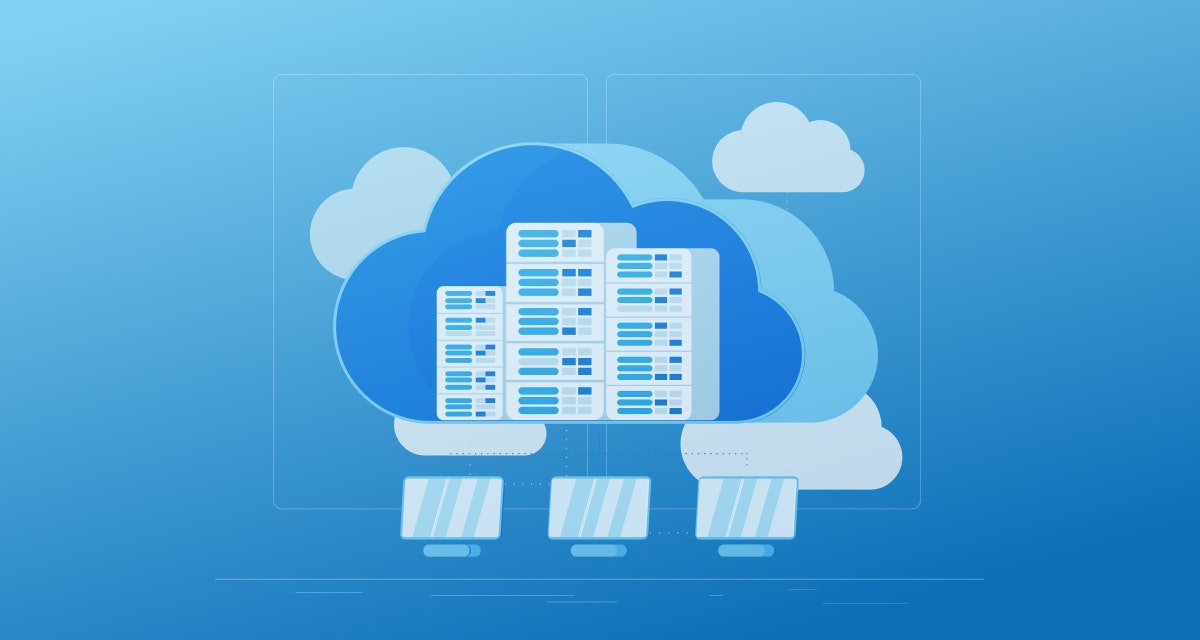Cloud computing technologies are evolving, and have penetrated deep into a vast plethora of industries. Quick access to information, organized and secure storage mechanisms and seamless shareability being the key attributes of cloud computing, it has made its way into the IT infrastructure of almost every successful business firm. In the upcoming years, cloud computing is expected to become the core data processing technology in the industry.
According to Forbes, the three key IT giants, Amazon Web Services, Microsoft and Google will be capturing 80% of the cloud computing revenue by 2018. While companies are inclining towards personalized cloud computing systems, trends of integrating the virtual storage system are changing with time. Here are the emerging cloud computing trends, which are likely to be visible in 2021 and beyond.
Hybrid cloud
Integrating private cloud, public cloud and third-party cloud systems, hybrid cloud mechanisms are likely to make their presence conspicuous in 2018. While a section of the global firms has already embraced technology, others are likely to follow the suit. Integrating hybrid cloud systems will leverage the shareability of information, besides reducing the operational costs of the business. Hybrid cloud systems deliver a greater degree of flexibility to the business and offer more options for data deployment.
Industry-specific cloud systems
Tailored cloud systems being the priority of every industry, 2018 will witness the extensive use of industry-specific cloud systems. Business firms dealing with healthcare, banking, life sciences, legal and other aspects are moving towards industry-specific cloud systems. These cloud-based solutions come with customized features, which can streamline the internal operations of these firms. A dedicated cloud infrastructure slashes downtime and cost requirements of a firm to a substantial extent.
Multi-cloud strategies
Another emerging trend in the cloud computing technology in global firms is the integration of multi-cloud strategies. Companies are opting for separate cloud storage systems for individual databases. True indeed, managing all your data on a single cloud platform turns out to be confusing. As the information load keeps on mounting, it becomes necessary to split the databases, according to the orientation of information and nature of data they contain. Integrating multi-cloud strategies enhance the functional efficiency of the firm.
Migration to private cloud
Private cloud systems are fast being incorporated into the IT framework of thousands of companies. A personalized data processing mechanism streamlines the business to a large extent. Besides, business firms enjoy the scalability and self-service features of private cloud systems. Although these are similar to public cloud systems to a certain extent, they cater to the needs of a single organization. Companies are keen to have a complete control over their computing infrastructure. Especially, companies dealing with big data can benefit from these cloud systems. Besides, private cloud systems offer greater resistance to cyber-attacks.
Invisible infrastructure
Cloud technologies are undergoing a steady development, and the next big thing in this domain is the integration of hidden infrastructure in business firms. Business firms are likely to shift towards cloud systems, which keep their infrastructure hidden. In the coming year, companies will go for seamless cloud integration, leveraging the functional efficiency of their systems. The users will be able to carry out business irrespective of the location of the applications. However, these structures will take time to replace the existing systems.
Redefining data ownership
With changing trends in cloud computing, the concept of data ownership is likely to change. A large number of new cloud systems are borderless. Regulations like General Data Protection Regulation (GDPR) are being implemented and the data ownership patterns are likely to change in 2018. Presently, a sizable section of the companies feels that the data they collect belongs to them and they are entitled to use them in any way they want. However, with the new regulations coming into play, business firms need to keep their cloud storage systems secured to protect the data of the individuals.
Challenges of data migration
With the increasing use of multi-cloud systems, the challenges of data migration are likely to increase manifold. Well, business firms are partnering third-party companies to manage their databases across multiple platforms. The number of data-specific applications has increased and entrepreneurs need to streamline the process of data migration in the cloud systems. Companies are shifting more data to the cloud to keep them secure. With a diversified cloud storage system, they need to deal with the data migration process with adroitness.
Challenges for the traditional storage mechanism
With the integration of cloud computing systems in a multiplicity of industries, traditional back-up and storage mechanisms are likely to have a setback in business. Companies have redefined their data centers in the virtual storage systems. The traditional vendors providing backup solutions are likely to be hit. The cloud storage mentality is penetrating fast into every professional unit. These vendors providing the data storage solution have been in the industry for around a decade. They need to come up with something path breaking to keep their business on tracks.
Diverse IT ecosystems
Experts reveal that 2018 will be the year of diversification of IT ecosystems. Companies are looking for flexibility in their data storage mechanisms. They need advanced tools for storing data that streamlines the accessibility to information in real time. Cloud systems also support collaboration between different departments of an organization in sharing and using data. In 2018, companies will integrate PaaS to a large extent on their platforms, which will give way to CaaS (Container as a service) platform. As a result, business firms will able to optimize their cost and time requirements.
Well, you may be willing to be a part of the change, leveraging the functional efficiency of your company. Today, most of the companies are outsourcing their cloud computing services to established partners.
Intuz is one of the frontline cloud computing service providers, collaborating with several global companies over the years. The AWS certified company provides a wide range of services, ranging from data migration, consultancy, disaster recovery, cost analysis and much more. A seamless collaboration with a dedicated cloud computing partner can bolster your business.





